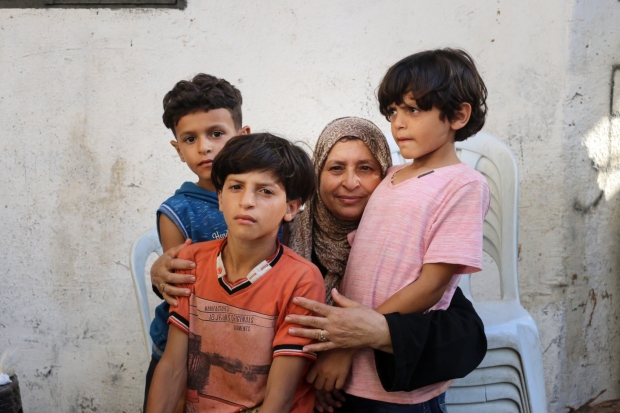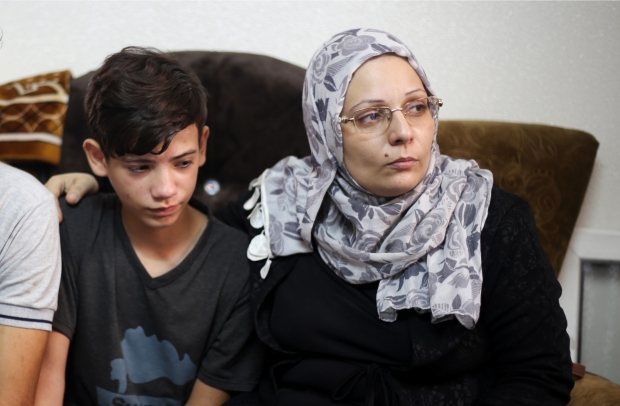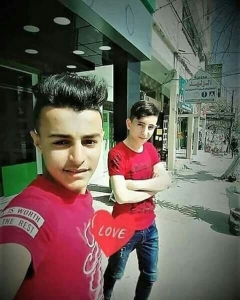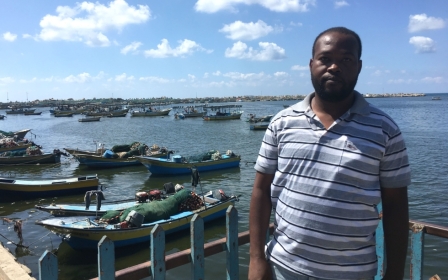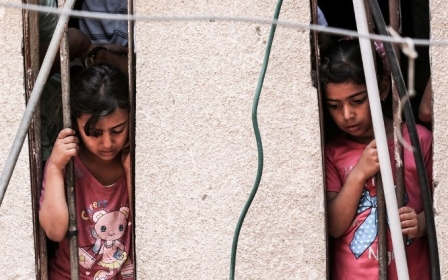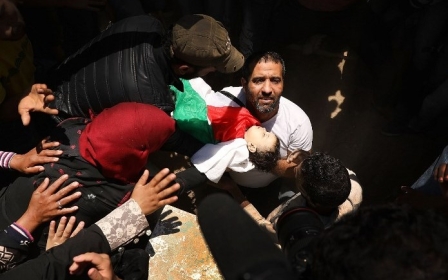Together until the end: The last hours of two Gaza teens
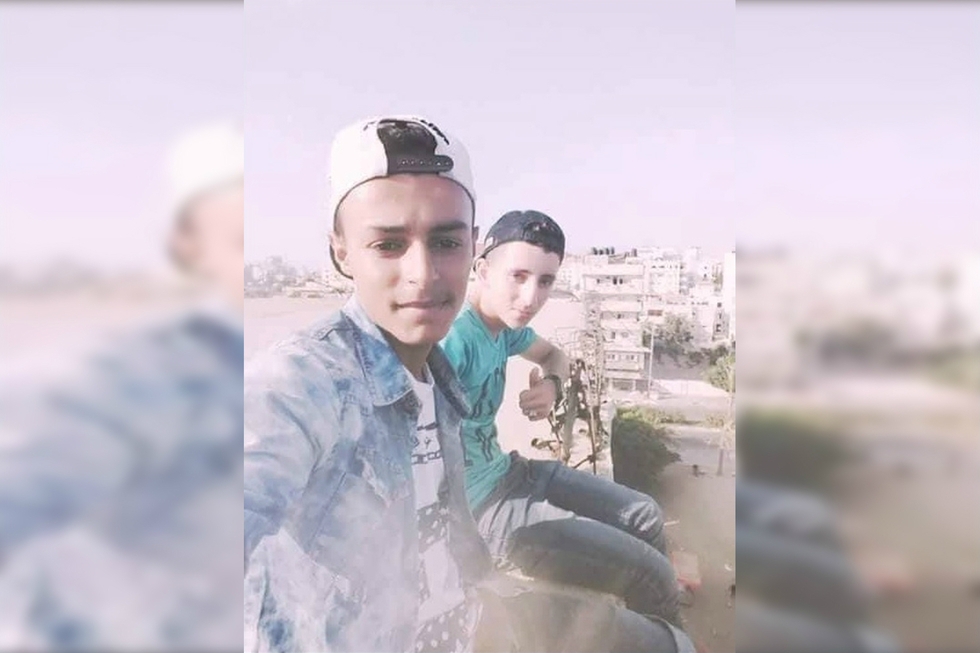
GAZA CITY, Gaza - Everyone said Luay Kahil and Amir al-Nimra were more like brothers than friends. Even their birthdays - 28 August for Amir, and 13 September for Luay - were not far apart.
The inseparable teenagers, who spent most of their time together playing, getting food on the streets, studying, or simply hanging out sharing their dreams and secrets with each other, were together until the end, when a 14 July Israeli air strike hit a popular square in Gaza City.
Israeli Prime Minister Benjamin Netanyahu hailed the series of air strikes on Saturday - which purported to target Hamas facilities in one of the widest Israeli military operation in Gaza since 2014 - as "(striking) Hamas with the hardest blow since Operation Protective Edge.”
But in al-Sabra, the neighbourhood where 15-year-old Amir and 16-year-old Luay lived, the killing of the teenagers has left their families and friends in shock.
'We agreed to see each other the next day. I never expected I would be seeing them at the morgue.'
- Mohammed al-Jamal, a friend of Luay and Amir
Gazan boys
Relatives remember Amir as very stylish young man, spending hours in front of the mirror perfecting his hairdo. He dreamed that his father, who owns a driving school, would one day buy him an automatic car.
The second of seven children, Amir shared a room with his brother Walid, older than him by only a year and half. In the Nimra family home, Amir and Walid shared clothes and a bed, talking to each other every night before they fell asleep.
Amir had hopes of becoming an athlete and joining a gym, but a lifelong heart ailment prevented him from doing so. Nonetheless, he loved sports, especially football - a passion he had in common with Luay.
“Small in age, but great in thought”: such were the words used by Luay’s relatives, friends and teachers to describe the him. He was seen as smart beyond his years.
One of six children - four boys and two girls - Luay took his role as the eldest sibling seriously, especially since his parents’ separation.
Luay’s friend Abdullah Abu al-Asr recalls how, whenever Luay headed to his father’s home without his siblings, he would ask Abdullah to keep an eye on them and make sure they didn’t loiter in the street.
During the summer holidays, Luay would spend his time training at his uncle Mohammed Kahil’s gym, or memorising the Quran at the local mosque - but his dream was to complete his education abroad.
"He was a smart kid, very happy and reliable,” Luay’s uncle Mohammed recalls fondly. “He liked to take pictures, and did not like to be treated like a child.”
A day like any other
On that fateful Saturday, life went on as normal for the two boys.
Like every day during the holidays, Amir went to work with his father at the driving school at 7:30am, only returning home around 4:30pm, his mother, Maysoun, says.
Having skipped lunch earlier in the day so someone could kept an eye on the school while his father went to eat with his brothers, Amir told his mother he was going out to get some food with friends, leaving the house quickly afterwards.
“I didn’t see him before he left,” Maysoun says. “I wish I could have.”
Luay, meanwhile, had planned to be at the Gaza Sports Club with his uncle, but the gym was closed for the day. His mother, Maha, did not see him either before he left the house to hang out with Amir.
Amir asked his friend Khaled al-Dahshan to join them, but Khaled declined, worried about Israeli air strikes that had hit the Gaza Strip earlier in the day.
Days later, Khaled was still too shocked to utter more than a few words regarding the last interaction he had with his friend, and the refusal that saved his life.
Luay and Amir headed to al-Katiba Square, where they met up with their friend Mohammed al-Jamal.
Located in central Gaza City, the square is dominated by a large building under construction adjacent to a mosque. Despite the unfinished grey structure dominating the landscape of the plaza, al-Katiba is a well-known spot for families and children to gather and relax.
The boys ate falafel, Mohammed recalls, and kicked a football around for a while. Amir rode a camel and asked Mohammed to take pictures of him as he sat atop the animal, before Mohammed headed off.
“We agreed to see each other the next day,” Mohammed says. “I never expected I would be seeing them at the morgue.”
After Mohammed left, Amir and Luay decided to climb to the top of the unfinished building at al-Katiba to take some selfies with a view of their city as the backdrop.
They did not know that with every stair they climbed, they were sealing their fate.
According to witnesses, Israeli F-16 fighter jets fired at least four missiles at the al-Katiba Square building.
Luay and Amir were the only people in the edifice. They, along with at least 12 other people on the square, were injured by shrapnel as a section of the building collapsed onto itself in a plume of dust and smoke.
“Even before I heard the news of Amir’s death, I was very nervous,” Maysoun says. “When I saw the smoke rising from the bombing - but I didn’t know that the rising smoke was the spirit of my son.”
A few minutes after the air strike, a family friend arrived to the Nimra home holding his phone, the screen displaying a photo of one of the victims of the strike.
Maysoun instantly recognised Amir’s green shirt. In a daze, she rushed on foot towards the al-Shifa hospital, flinging open the doors of each ward one by one in search of her son.
By the time she reached the intensive care unit, a doctor told her Amir had died. When Maha, Luay's mother, heard the news of Amir's death, she rushed to the hospital in a taxi.
“We announce the names of the martyrs”, the announcer on the radio began.
But Maha couldn’t bear the thought that she might hear of her son’s death this way.
“Please,” she asked the taxi driver, “please turn off the radio.”
This article is available in French on Middle East Eye French edition.
New MEE newsletter: Jerusalem Dispatch
Sign up to get the latest insights and analysis on Israel-Palestine, alongside Turkey Unpacked and other MEE newsletters
Middle East Eye delivers independent and unrivalled coverage and analysis of the Middle East, North Africa and beyond. To learn more about republishing this content and the associated fees, please fill out this form. More about MEE can be found here.


